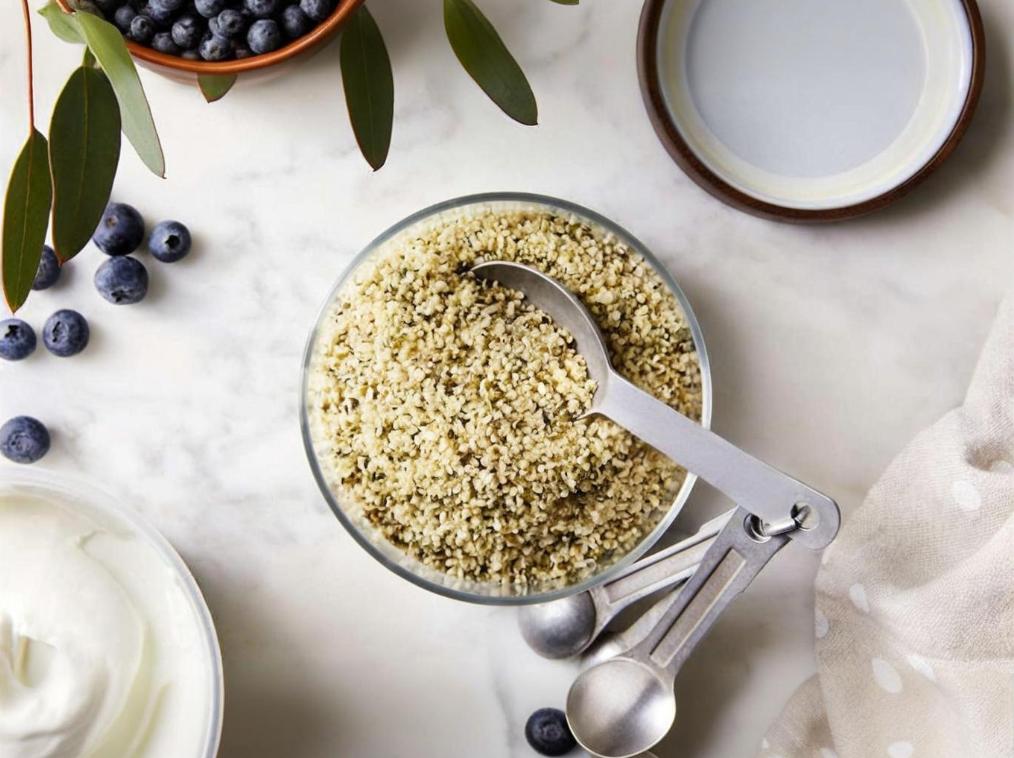I used to sprinkle whole hemp seeds on salads and oatmeal—until a suspiciously crunchy bite sent me to the dentist. That cracked tooth sparked a deep dive into whether shelled hemp hearts or unshelled seeds deserve a spot in your pantry. After two years of testing both, here’s the unvarnished truth backed by science and hard lessons.
The Core Difference: What You’re Actually Eating
- Hemp Hearts: Tender, shelled inner seeds (90% of the seed’s nutrients).
- Unshelled Seeds: Whole seeds with a rigid outer hull.
Key insight: The hull contributes minimal nutrition but major texture challenges.
Nutrition: Beyond the Surface Numbers
At first glance, unshelled seeds seem superior in fiber (12g vs. 3g per 3 tablespoons). But here’s what labels don’t tell you:
- Unshelled seeds’ fiber is indigestible cellulose—your body can’t break it down. It passes through unchanged, offering no gut health benefits.
- Hemp hearts’ fiber is soluble, feeding probiotics and lowering cholesterol.
- Hearts deliver 3x more absorbable iron (45% DV) and zinc (30% DV) because shelling removes phytic acid—a nutrient blocker in hulls (Journal of Nutrition).
The Hidden Costs of Unshelled Seeds
- Dental Danger: Hulls are harder than almond shells. My dentist confirmed they’re a common cause of cracked molars. Grinding them helps, but you’re essentially creating DIY hearts.
- False “Fiber” Claims: Marketing touts unshelled seeds as high-fiber, but that fiber lacks functional health benefits.
- Nutrient Lock: Phytic acid in hulls reduces mineral absorption by 50%. You’re eating more but absorbing less.
Why Hemp Hearts Dominate Daily Use
- Bioavailability: Nutrients absorb faster without anti-nutrient barriers.
- Versatility: Dissolves in yogurt, blends into sauces, bakes seamlessly. Unshelled seeds add gritty texture.
- Safety: No choking risk for children or seniors.
- Taste: Mild, nutty flavor vs. the grassy bitterness of hulls.
When Unshelled Seeds Make Sense (Rarely)
- Budget Option: Unshelled costs 40% less. Buy in bulk, grind, and store in the freezer.
- Non-Food Uses: Hulls deter garden pests or add fiber to pet food (consult your vet).
The Organic Imperative
Hemp plants absorb soil toxins 6x faster than kale. Always insist on:
- USDA Organic certification
- Third-party heavy metal tests (lead, cadmium)
- Avoid vague “natural” labels—they’re unregulated.
Practical Uses: My Kitchen Routine
- Hemp Hearts: Stir into oatmeal, top roasted veggies, mix into burger patties.
- Ground Unshelled: Bake into breads or add to compost for soil enrichment.
The Final Verdict
For 95% of people, hemp hearts are the clear choice. You gain more absorbable nutrients, avoid dental bills, and skip the “fiber fraud” of hulls. Reserve whole seeds for grinding or non-food uses.
Simple Recipe: Savory Hemp “Parmesan”
- Blend ½ cup hemp hearts + 2 tbsp nutritional yeast + 1 tsp garlic powder + sea salt.
- Sprinkle on pasta, popcorn, or avocado toast. Stores for 4 weeks refrigerated.
All the benefits, none of the compromises.
Recommended Product
Organic Hemp Hearts
Available in < 5%, 5–10%, 10–15%, 15–20% Green Skin and customized. All specifications support both…

